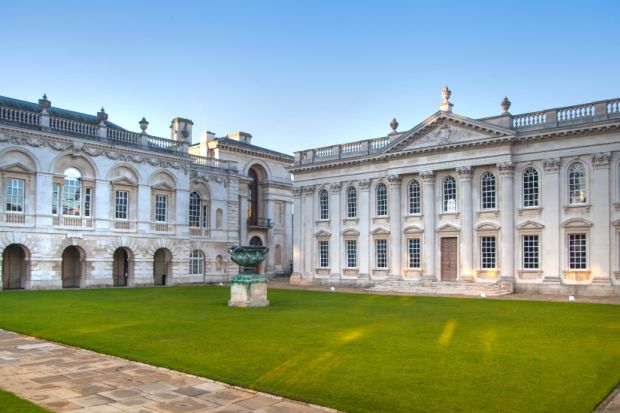Academics at the University of Cambridge have overwhelmingly backed a series of amendments to a controversial free speech policy.
The three amendments to the policy, which had been proposed by the institution’s executive body, were each backed by between 77 and 87 per cent of the voting members of Regent House.
As reported by Times Higher Education, the proposed Statement on Freedom of Speech, which revised a policy adopted in 2016, said that “in exercising their right to freedom of expression, the university expects its staff, students and visitors to be respectful of the differing opinions of others”, and that they are also expected to “be respectful of the diverse identities of others”.
One of the amendments sought to replace the phrase “be respectful of” with “tolerate”.
Another amendment objected to the revised policy’s list of circumstances in which the university could refuse permission for events to be held, which included when there was a “reasonable belief” that an event was likely to “include the expression of views that are unlawful because they are discriminatory or harassing”.
The approved amendment instead says that “the university may only restrict speaker events given a reasonable belief that such events are likely to involve speech that violates the law, that falsely defames a specific individual, that constitutes a genuine threat or harassment, that unjustifiably invades substantial privacy or confidentiality interests, or that is otherwise directly incompatible with the functioning of the university”.
The amendments had been signed by around 60 Cambridge staff, including prominent academics such as economist Diane Coyle and statistician Sir David Spiegelhalter.
Opponents of the executive’s draft had warned that calling for “respect” was “vague, subjective and restrictive”, and claimed that the policy could be “weaponised” in scholarly disputes and threaten careers.
Cambridge’s vice-chancellor, Stephen Toope, said that he “welcome[d]” the result of the vote, which he described as “an emphatic reaffirmation of free speech in our university”. The amended statement would now be implemented, he said.
“Freedom of speech is a right that sits at the heart of the university. This statement is a robust defence of that right,” Professor Toope said.
“The university will always be a place where anyone can express new ideas and controversial or unpopular opinions, and where those views can be robustly challenged. The statement also makes it clear that is unacceptable to censor or disinvite speakers whose views are lawful but may be seen as controversial.
“Rigorous debate is fundamental to the pursuit of academic excellence and the University of Cambridge will always be a place where freedom of speech is not only protected, but strongly encouraged.”
More than 1,500 members of Regent House participated in the ballot.
Register to continue
Why register?
- Registration is free and only takes a moment
- Once registered, you can read 3 articles a month
- Sign up for our newsletter
Subscribe
Or subscribe for unlimited access to:
- Unlimited access to news, views, insights & reviews
- Digital editions
- Digital access to THE’s university and college rankings analysis
Already registered or a current subscriber? Login








